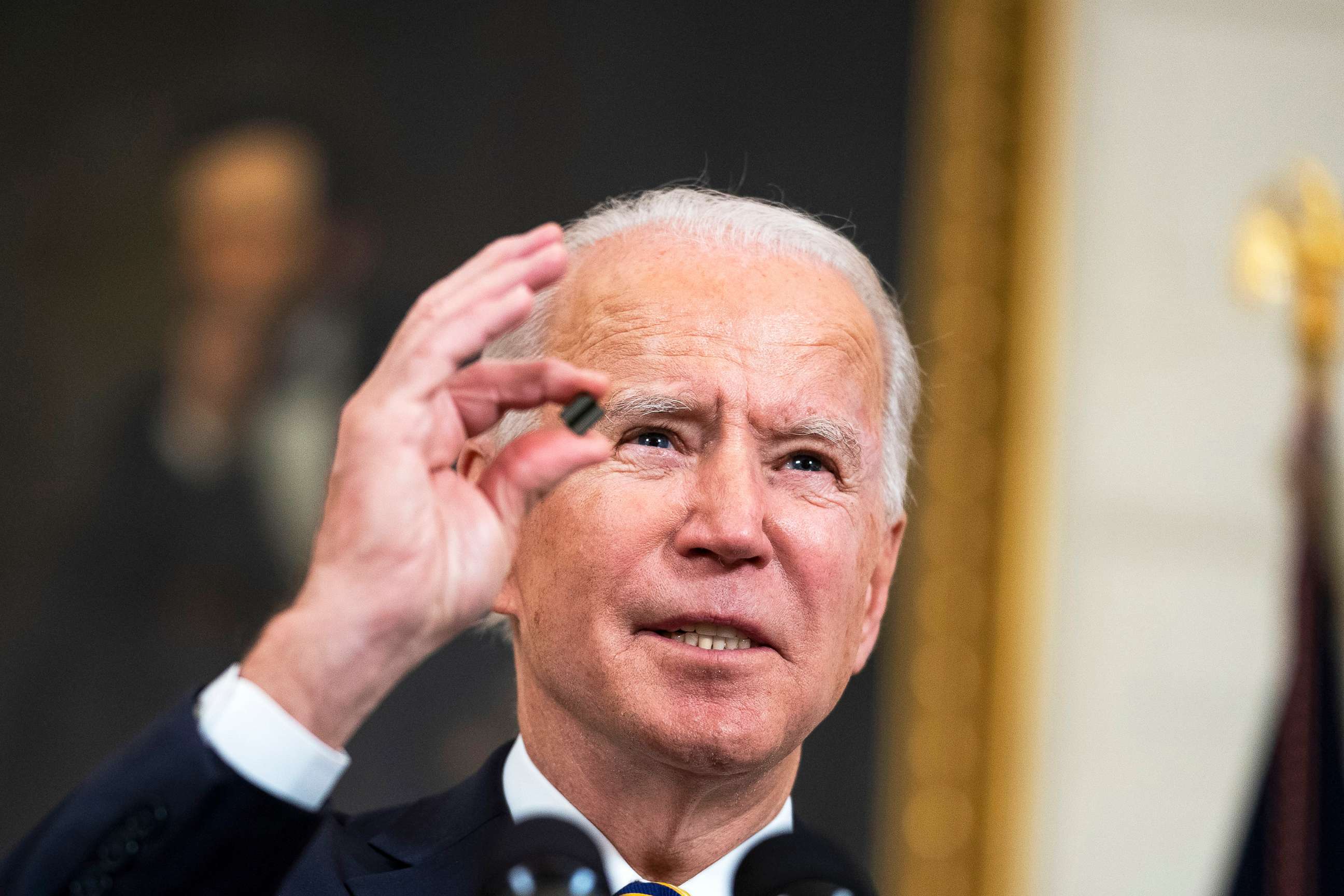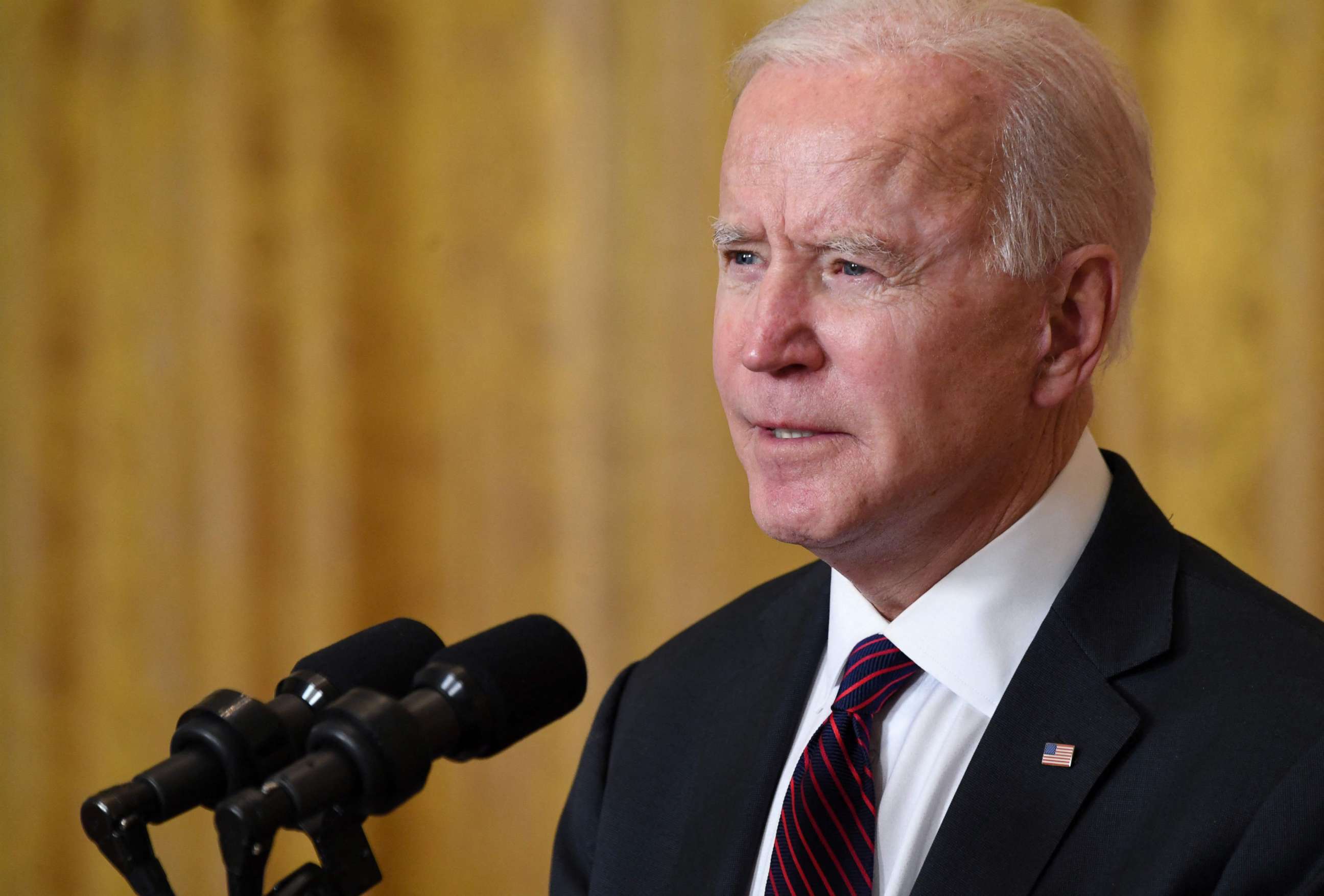Biden signs executive order aimed at securing critical US supply chains
The order will launch a 100-day review for four product supply chains.
President Joe Biden signed a new executive order Wednesday mandating a 100-day review of critical product supply chains in the U.S., focused on those for computer chips, large capacity batteries, active pharmaceutical ingredients and critical minerals and strategic materials, including rare-earth minerals.
The order is part of the administration's effort to secure domestic supply chains in the wake of the COVID-19 pandemic that highlighted vulnerabilities that currently exist.
"The bottom line is simple: The American people should never face shortages in the goods and services they rely on, whether that's their car or their prescription medicines or the food at the local grocery store," Biden said in remarks prior to signing the order.
"This is about making sure the United States can meet every challenge we face in this new era. Pandemics, but also in defense, cybersecurity, climate change and so much more. And the best way to do that is by protecting and sharpening America's competitive edge by investing here at home," he said.

In addition to the review of the four supply chains, Biden's executive order also calls for six sector-specific supply chain reviews, including defense, public health and biological preparedness, energy and food production.
Administration officials said these reviews will be completed within a year, but did not have a timeline for implementing changes as a result from the reviews.
Amid the coronavirus pandemic, the issues of U.S. supply chains came into clear focus as the country struggled to get the personal protective equipment needed for health care workers, relying on China and other countries for the critical supplies early on in the pandemic.
"That should have never happened, it should never happen again in the United States. Period. We shouldn't rely on a foreign country, especially one that doesn't share our interests or our values, in order to protect and provide our people during a national emergency," Biden said.
Administration officials who briefed reporters on the order Monday night acknowledged that the United States' reliance on competitors for certain products was one problem that exists, but repeatedly shot down the idea that the order was specifically focused on China and its foothold on many essential products.
"We really do see this as a resilient supply chain executive order, not a China executive order, though clearly one of the vulnerabilities we have in supply chains is the potential for competitors -- strategic competitor nations -- to try to use control of our supply chains against us," an official said.
"So you know that is certainly one of the vulnerabilities we are looking at, but by no means, as we were talking about earlier, is the only one," the official said.

The officials also stressed that building up America's supply chains would not mean America is going it alone, but would see the country work with allies as part of the efforts to address weaknesses overall.
Prior to signing the executive order, Biden held an Oval Office meeting with Vice President Kamala Harris and a bipartisan group of lawmakers to discuss the issue, praising it as "one of the best meetings" he's had during his presidency, given both parties commitment to addressing the issue.
"It was like the old days. People actually were on the same page," Biden said.
Specifically, the Oval Office meeting focused on an ongoing shortage of semiconductor chips for automobiles.
According to the Semiconductor Industry Association, the auto industry reduced production in the early months of the pandemic while demand dropped for cars, but surged for chips used in computers and equipment needed for distance learning and working from home.
However, a demand for the chips used in cars ultimately increased at a faster pace than expected, leading to the current shortage of supplies to produce them.
"We need to make sure these supply chains are secure and reliable. I'm directing senior officials in my administration to work with industrial leaders to identify solutions to this semiconductor shortfall and work very hard with the House and Senate," Biden said, adding his administration would also reach out to allies and others in the supply chain to address immediate needs.




